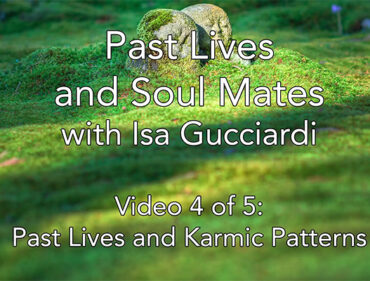Blog: Ask Isa: Finding Meaning in Divorce
By Isa Gucciardi, Ph.D.
Question: I just got divorced and it’s brought up a lot of shame for me. I feel like I failed in my marriage. How do I deal with the shame?
Isa: Whenever you have shame, you have blame. It sounds like there might be an internal conflict going on, where one part of you is blaming you and one part of you is receiving the messages of blame and feeling ashamed. I would recommend sitting down and exploring the part of yourself that is making you feel ashamed.
One way to do this is to think about all of the expectations you had going into the marriage. Consider the expectations you had of yourself, the expectations you had of the other person, and the expectations you had of the marriage itself and what you hoped it was going to do for you. For instance, if you got married because you wanted to feel validated by your family, ask yourself why you didn’t feel validated before you were married. You have to honestly examine your motivations for entering the marriage to discover what is behind these expectations. As you become clear about what your expectations were, you’re going to see how you respond when your expectations are not met.
It is also important to look at the cultural assumptions around marriage you may have internalized. Many people feel they have to be married, have a family, and fulfill this culturally-defined way of being in the world. If they can’t do that, they think there’s something wrong with them. The truth is, there are many people who thrive when they are living lives that differ from cultural norms. For example, some people might thrive in a monastic situation, while an artist or musician might thrive in an environment where they have enough space to listen to their “inner muse” without distraction. Often people will thrust themselves into culturally-defined roles because they’re trying to meet the expectations of people in the culture— their parents, family or society members— and they don’t listen to the unhappiness they experience when they are playing these roles.
Divorce can be a catalyst for reconnecting to yourself. If you’ve tried to put yourself into a culturally-defined role that is against your nature, it’s going to create internal friction. The rupture of the divorce offers you the opportunity to look at the ways you are not being honest with yourself and the ways you were selling-out to culturally-defined roles in order to have a place in society. In the aftermath of the divorce, the process of understanding who you are and what your place in the world is actually begins. People often call this “the dark night of the soul,” but it is a profoundly meaningful and liberating passage for everyone to go through.
There’s a lot to learn from having the courage to step away from how you have historically defined yourself. It is powerful to allow yourself enough space to grow into yourself, rather than striving to be the person you were twenty years ago. This is an important life event for taking stock of where you’ve been and where you’re going. You don’t have to get a divorce to find this authentic self, but if you got married in order to fulfill the expectations of society, divorcing could actually help you return to your original self, and the dark night of the soul could become a journey of self-discovery.
Editors’ Note: For more guidance navigating relationships, check out Isa Gucciardi’s Empowered Living Classes: Relationships and Karma, Relationships and Power, & Coming to Peace: The Inner Self
ENJOYING THE STREAM OF CONSCIOUSNESS BLOG? SIGN UP FOR FREE UPDATES!



